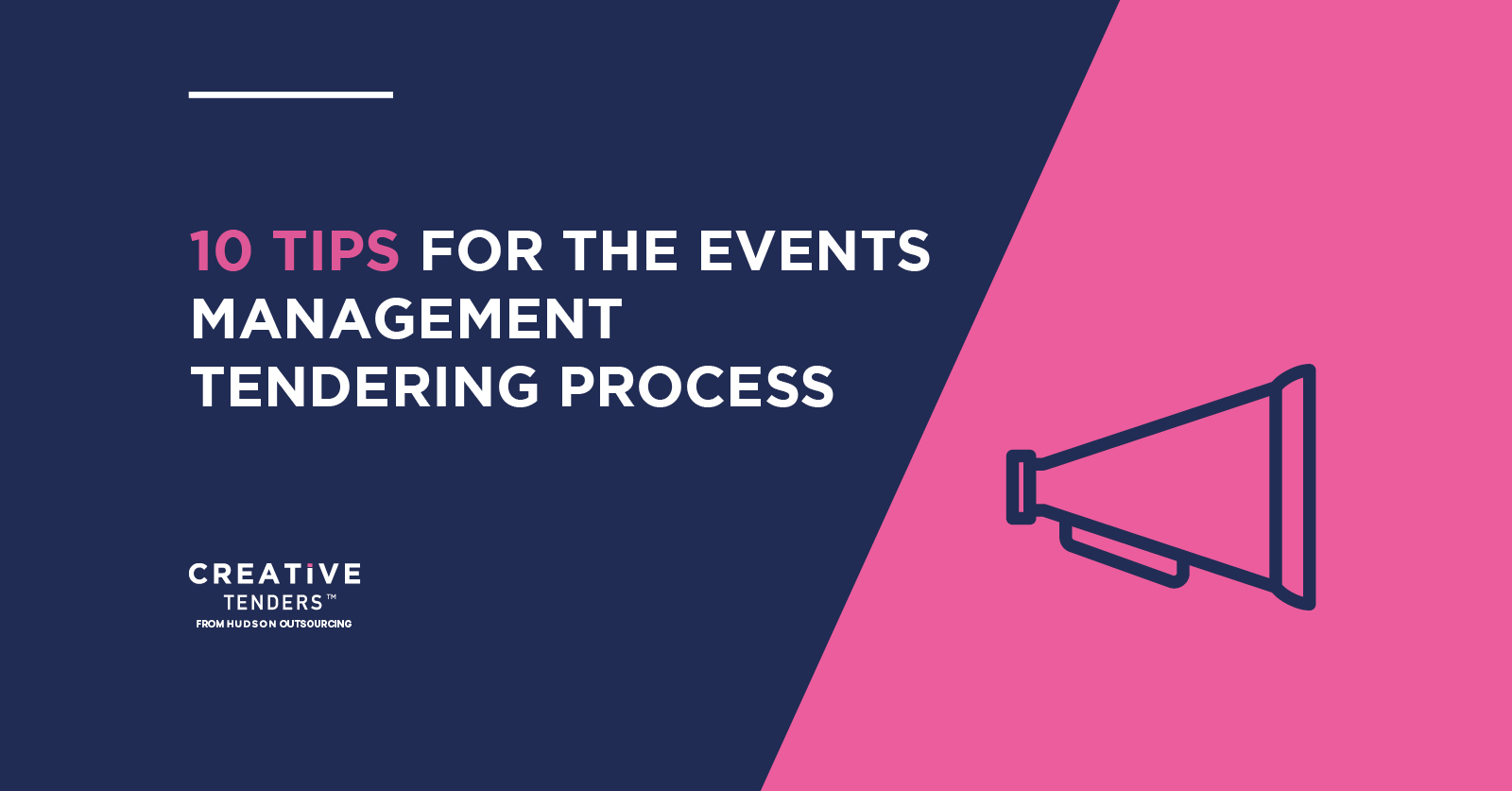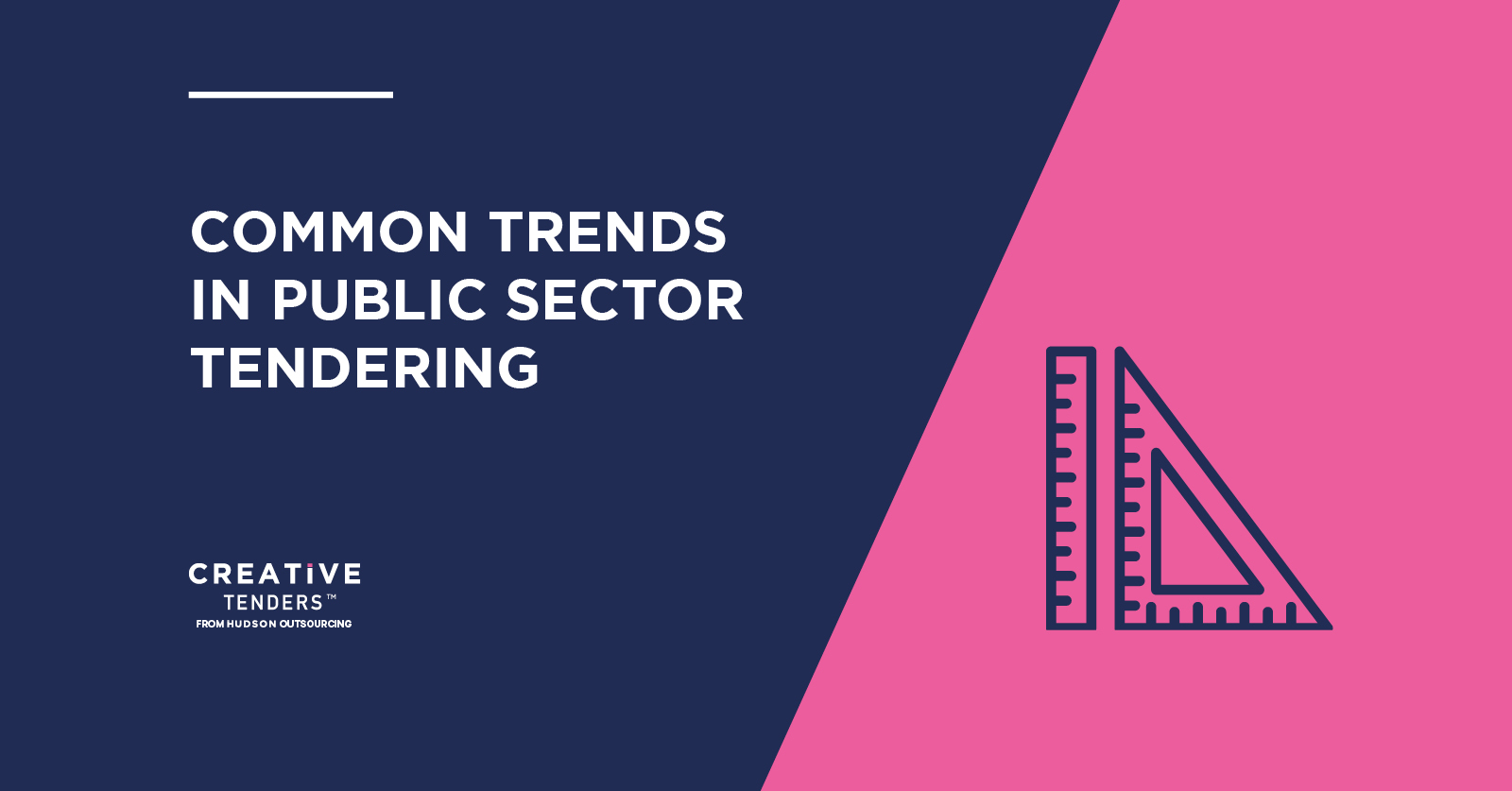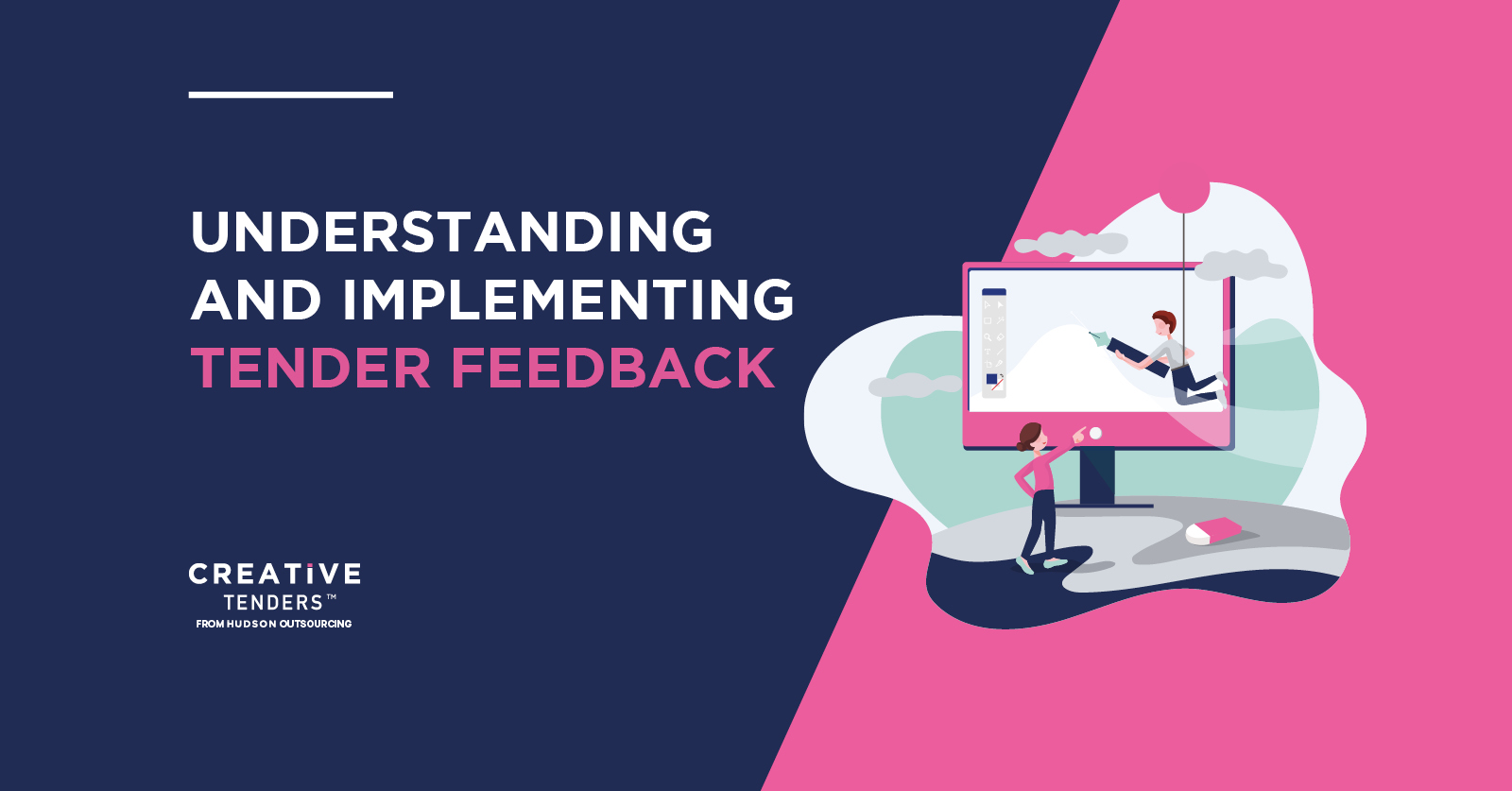Here’s an overview of what to expect and prepare for when tendering for event planning contracts
If you’re reading this article, you’re likely wondering two things about event planning contracts. The first is probably, what types of contracts are available for companies within the event planning sector? The second, what does the process of bidding for an event planning contract involve?
Finding tendering opportunities that match your services and capabilities can be an arduous and daunting process. Often, you need to filter through countless tendering platforms. The prospect of heading this process is what informed our foray into the industry. We implemented our strategy especially for bidders where existing responsibilities already take up so much of their time. At Creative Tenders, we have extensive expertise and consultancy experience in sourcing tenders and ultimately, in winning them!
The scope of event planning tenders
First, a disclaimer in relation to event planning bids is the breadth and diversity of tenders that are available. To provide a complete overview, we’ll tackle each prospective opportunity type. We’ll also look at what kind of processes you’ll need to follow when organising and constructing your tenders:
Considerations for event planning contracts
Event planning can itself be quite an intimidating term, inclusive of a diverse range of roles and responsibilities. Something we endeavour always to note with our clients is that the two most important factors to successful tendering are:
- Experience – This refers specifically to the experience of the bidding organisation, rather than the experience of specific individuals within the organisation.
- Proposed methodology/solution – In the context of event planning, this encompasses your organisations management strategies and infrastructural commitments.
When demonstrating experience, it’s important to ensure that your examples illustrate, at a minimum, the following features:
- An established understanding about the processes and procedures involved in event planning.
- Prior experience of working on contracts with both a comparable scale and comparable planning/management responsibilities.
Typically, you’ll likely be asked to provide, at a minimum, 2-3 prior contract examples where the stated features are present. The strongest responses for contracts in event planning will often use these prior contracts. These not only act as evidence of past experience, but a platform for validating their methodology and why its suitable.
Common oversights
When entering into the bidding process for event planning/management, there are a variety of considerations you should keep in mind. There are countless instances where wholly suitable, qualified enterprises, through neglecting the following features, lost out on desired contracts:
-
Read AND refer to the specification
Before committing to a particular contract, it is vital that the ITT (invitation-to-tender) is studied in sufficient depth. This ensures you meet the pre-qualification criteria, but also that you possess the appropriate infrastructure. Infrastructure relates to both recruitment and sourcing procedures, in place from commencement through to the conclusion of contracted works.
In lieu of an internal writing team, the following list details several strategies for determining personal/corporate suitability:
- Location: Establish where the contracted works will take place. Firstly, where is the site/event? Secondly, where is your base-of-operations? And thirdly, is it in close enough proximity to assure the buyers of your capability to deliver during the contract?
- Budget/scale: This should be a key consideration in all bidding proposals. Once you’ve consulted the ITT/specification for an overall budget and contract scale, take this opportunity to determine:
- Is the budget reflective of the services that your corporation is capable of providing? If not, how will works be subcontracted to supplement this?
- Is the scale of the project/event reflective of your infrastructure? If no, how will you alter your recruitment and outsourcing practices to make sure events are planned and managed effectively.
- Key dates: Other key factors when searching for suitable bids are your resources and the timescales for deadlines and production. An awareness of basic key dates: contract commencement and tender submission deadlines being the primary figures worthy of note.
- Pre-qualifying/required accreditations: Though variable per tender, contracts in the event planning industry can require an array of qualifications and licenses. These are foundational indicators of your ability to carry out and effectively meet the specified criteria for service delivery. Required qualifications may be extended to include individual experience and credentials of team members (lighting, filming, etc.).
-
Innovations and USPs (Unique Selling Points)
Given the diverse operational requirements which define event planning, another element worth including in responses is your enterprise’s USPs.
USPs refer to any innovations which might distinguish you amongst your competitors. To demonstrate your enterprises commitment to ongoing growth, it’s worthwhile to include >3 innovations that your company has implemented. These USPs may include any mechanisms which streamline procedures and increase productivity. Innovations come in many forms, including:
- Systems: Though not exhaustive, systematic innovations can refer to your operating system, communications platforms, planning and reporting tools, and financial software. Assuming, for example, your organisation provides its personnel with IM platform(s), you should detail why these are comparably effective.
- Resources: An overarching term to describe your material and infrastructural sourcing strategies. For example, if your organisation uses a unique hiring platform/strategy, how is it superior to the standard strategy?
-
Policies and other pre-requisite documents
Like most enterprises emerging into the tendering market, your company is likely in its infancy. It may be worthwhile – prior to tendering – to ensure all appropriate corporate policies are documented and recently renewed. Though not exhaustive, the list below provides an insight into areas where policies are expected:
- Data protection
- Safeguarding
- Health and safety
- Equality
- Code of conduct
- Complaints
To tenderers, your policies act as indicators regarding your general operations and delivery standards. Additionally, they provide further insights into your enterprise’s lines of accountability, expectations and your treatment of employees. Policies are varied and often span numerous pages, making their production a daunting prospect for those foraying into corporate status. Luckily, at Creative Tenders, our established team of bid professionals have provided aid in refining and producing tenders. We also have extensive experience providing bespoke advice and guidance to organisations creating them.
Why tender for event planning contracts in 2022?
Since the advent of COVID-19, it’s no wonder countless suppliers assume planning contract opportunities would be scarce and excessively competitive. This isn’t completely accurate, however, as the government projection posits 35% of all tourism-based revenue will originate from events. Coupled with the government drive towards SME and VCSE sourcing, this demonstrates the present tendering climate is rife with opportunities.
How can we help?
Presently (July 2022), restrictions continue to ease, and public events are once more becoming a commonplace occurrence. As such, the need for planning and management personnel on events of all sizes is greater than ever. A subscription to Creative Tenders provides the following support mechanisms to aid you in the process:
- Access to all exclusive, public and private sector creative contracts in the UK.
- An on-hand Account Manager is available to answer any questions you may have about event planning tenders. They can help you understand the process and answer any questions you have about the tendering process in general.
- A daily email bulletin is sent straight to your inbox when new event opportunities are uploaded.
- Discounted support from Hudson Succeed, our bid writing division.
- 20-minutes of free consultancy with one of our Bid Management Consultants each month.
Need additional support?
You don’t always have the time or resources to write a winning response in-house. Outsourcing to bid writing experts can help. Our sister company, Hudson Succeed, offers four levels of bid writing support. They boast an 87% success rate and have over 60 years of bid writing experience. The services on offer include:
- A Tender Writing service
- A Tender Ready programme
- The Tender Improvement package
- Tender Mentor.
Contact us to find out how we can help your business grow.
We also source opportunities for sectors including:
- Events Management
- Digital Services
- Design
- Graphic Design
- Marketing
- Website
- Video Production and many more.
Book a free live demo with Creative Tenders to see how we can help your business grow.
Past examples of event planning tenders found on our portal
Event Planning & Delivery Services of the Para-Cycling Road
2023 UCI Cycling World Championships – Scotland – Budget: £990,000
Ceremonial Event Planning and Management
Scottish Government – Scotland – Budget: £700,000
GB-Middlesborough: ERDF – Grow Trees Valley Annual Conference and Event Planning
Teeside University – North East – £500,000
Whatever route you choose, Creative Tenders have options available for businesses of all sizes and contracts of all scales. We can offer your enterprise an immense leg-up in competing and thriving on contracts within the event planning sector.



















